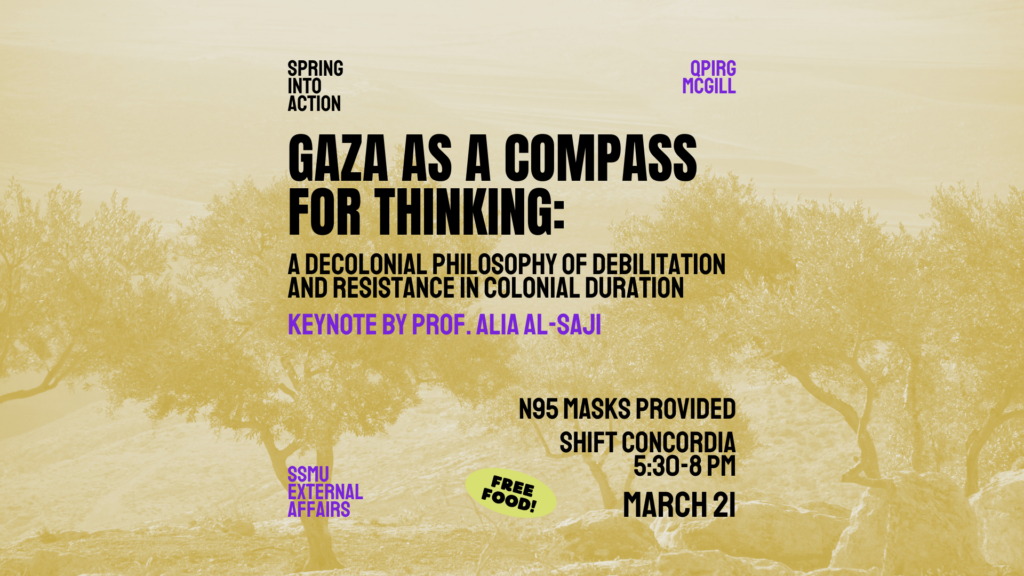
- This event has passed.
Gaza as a Compass for Thinking
mars 21 @ 5:30 pm–8:00 pm EDT
Keynote lecture by Dr. Alia Al-Saji, professor of Philosophy at McGill
Gaza as a Compass for Thinking: A decolonial philosophy of debilitation and resistance in colonial duration
Seventeen months into the genocide in Gaza, our philosophies remain for the most part either silent or complaisant, seemingly unable to think with a contemporaneous reality that would shake many of its presuppositions and theoretical tools. This is a colonial duration in which genocide continues to snowball—during the current ceasefire—through disease, cold, exposure, starvation, untreated injury, and the debilitation of the infrastructure for healthcare. Refusing the application of pregiven frameworks, I ask what an anticolonial/decolonial and feminist philosophy that accompanies and affectively registers this reality may be. What is it to take Gaza as the compass for thinking. What might it mean to resist and refuse the inevitability of this colonial duration. Drawing on concepts of qahr (suffering, oppression), ashla’a dismemberment), shaheed (martyr, witness) and sumud (steadfastness), found in Palestinian, Arab and Muslim thinking—and on thinkers from Fanon to Shariati, Azoulay, and Meari—I reconfigure an approach to philosophy that might begin to do justice to Palestine.
Bio:
Alia Al-Saji is Professor of Philosophy at McGill University. Al-Saji’s work brings together phenomenology, critical philosophy of race, and feminist theory, with an abiding interest in questions of time and affect. She has published extensively in critical phenomenology and on the philosophies of Henri Bergson, Maurice Merleau-Ponty, and Frantz Fanon, most recently: “Touching the Wounds of Colonial Duration: Fanon’s anticolonial critical phenomenology” (Southern Journal of Philosophy, 2024). Her recent work extends Critical Disability Studies in colonial contexts, notably in: “A Debilitating Colonial Duration: Reconfiguring Fanon” (Research in Phenomenology, 2023).
Vegan meals will be served at the end of the event!
Masks are strongly recommended for this event. N95 masks will be available at the door.

